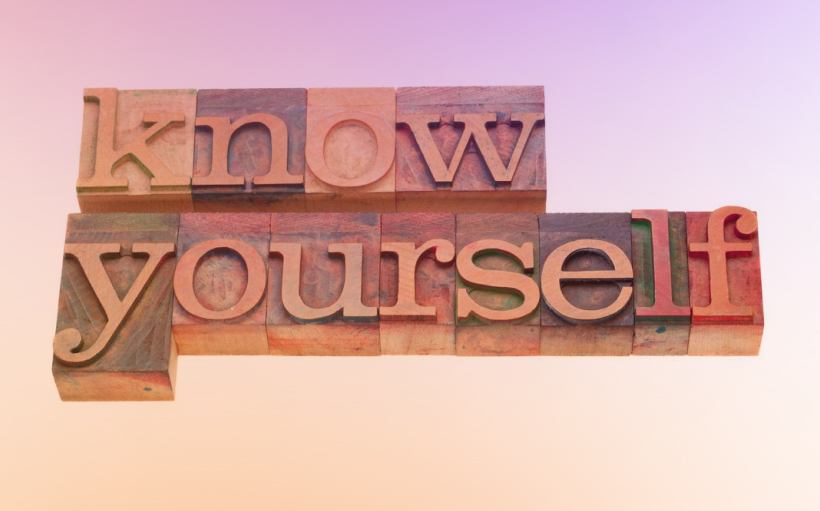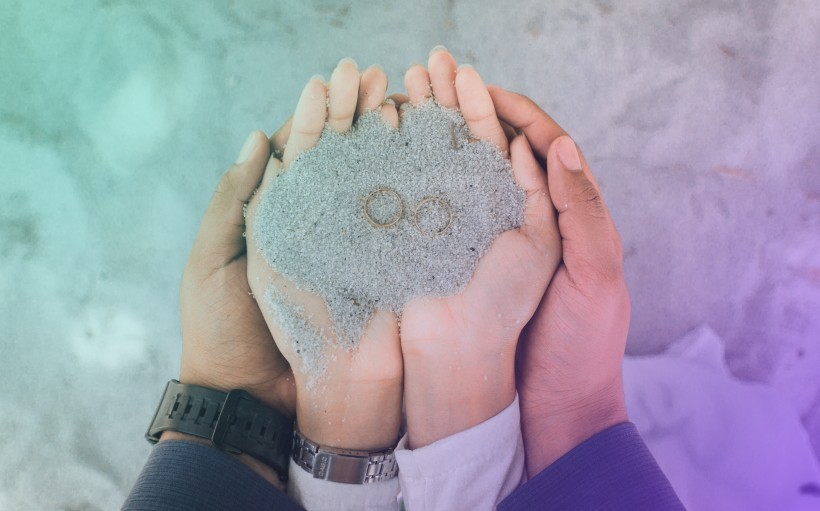How to Become the Most Authentic Version of You
Author, professor, and self-improvement speaker Dr. Wayne Dyer once said, “You don’t need to be better than anyone else; you just need to be better than you used to be.” We believe this is the most accurate answer to how to be a better person ever.
So, ask yourself: Are you a better person than you were yesterday, last week, month, or year? And how do you know if you are a better version of yourself than before? If it’s hard for you to find the answer, our guide will help.

How to Be a Better Person: 11 Must-Have Qualities to Develop in Yourself
Philosophers, psychologists, and self-improvement gurus have had their say on what constitutes a good person. While their terminology may differ, there do tend to be overall common factors that constitute a “good” person. If that is what you are striving to be, let’s have a look before we get down to the details of how you get there.
1. Integrity
When no one is watching, do you behave according to your moral compass? This is the cornerstone of integrity – knowing what the right thing is and doing it no matter what – no matter who knows, no matter what others’ opinions are, no matter who may criticize you for it, and no matter how tough it may be.
2. Compassion
Compassion is a complex term that includes:
- Understanding another’s pain and taking action to help alleviate it
- The desire to help someone suffering
- Empathy, meaning the ability to put yourself in the other person’s shoes and see a situation from their point of view
- Being a better listener so another person knows you have heard what they said
- Being kind, even when that kindness is not returned
3. Moderation
“All things in moderation.”
Aristotle
A good person will avoid extremes in behavior, finding a balance through self-analysis and self-discipline. Here is how it works in practice:
- Understanding your strengths and limitations
- Not taking ridiculous risks
- Indulging yourself to your own or another’s detriment
- Not making promises you cannot deliver
4. Good Judgment
People who have good judgment can analyze situations and make appropriate choices. So, you may have the power or ability to do something but do not.
You might be tempted to spend a lot of money on frivolous purchases, but you know the better choice is to put some money in savings. And so, you build up your savings instead.
5. Generosity
What do you have more of than you need? When most people think of generosity, they think of giving money. But giving what you have in goods or time can be just as important to the receiver:
- You can give extra time by volunteering to be of service to others or to the planet
- You can donate goods to homeless shelters or to a church to be distributed to those they know are in need
- There may be organizations to join and provide time to promote a cleaner earth
The most important part of generosity is that you don’t expect anything in return. Your reward is that you feel good about what you give.
6. Tolerance
When you practice tolerance and interact positively with all groups of people, you gain new perspectives, broadening their horizons. Are you a tolerant person? Here are some questions to check:
- How accepting are you of those who look, act, or believe differently from you?
- Can you see them as they are without criticizing or trying to change them?
- Do they feel respected by you?
It’s important to adopt a “live and let live” approach to everyone. You don’t have to agree with everything about them, but it is not your place to judge.
7. Honesty
With yourself, honesty means recognizing strengths, weaknesses, successes, and failures and interacting with the world accordingly. With others, honesty means owning your mistakes that affect others to fix them and self-improve.
If you have goofed on a project at work, you admit it and apologize. You don’t blame someone or something else.
Related reading: Victim Mentality: How to Pass the Pity Please
Being honest with others also means that you may have to deliver some negative messages to a good friend or a family member at times. If someone you care about is heading in the wrong direction, you tell them as lovingly and gently as possible. You are helpful, not judgmental. And how you deliver that honesty matters – sometimes, little white lies are the best tool to boost self-esteem.
8. Commitment
Good people keep their word, even when it’s tough:
- If you promise a friend to help them with a project, you keep that promise and see it through.
- If you are in a love relationship and have made a commitment to that person, you stay faithful, even though you might be attracted to someone else.
When you keep your commitments, others have good reason to trust and rely on you.
Related reading: What a Fear of Commitment Does to Your Relationship
9. Humility
Good people see everyone as equally valuable, no matter their station in life, and treat everyone with the same care and respect. Here are self-check questions to see your level of humility:
- How do you treat a waitress who is slow to bring your food?
- How do you treat a homeless person you encounter?
- Do you find a need to brag about your achievements, your money, or that better car you just bought?
A person whose life depends on achieving things without focusing on the greater good of everyone is not treated as a good person. There is always a place for being a bit humbler.
10. Love
Love is a loaded word, but what we mean here is having a big heart that genuinely cares about all living beings and things on the planet. Another important aspect is giving this love without expecting to get something in return.
If you want to know how to be a better person, give love to assist others in finding happiness and fulfillment, not for your benefit.
Related reading: Unconditional Love – Fantasy or Reality?
11. Strength and Courage
When a person has mental and emotional strength and the courage of their convictions, they will exhibit all of these other traits, no matter how tough that may be to do. Thus, everyone should become a better person by having the courage to stand by their principles and the strength to put them into action.
11 Steps on How to Become the Best Version of Yourself in Any Situation
Meeting the challenges of being a better person in hard situations requires heavy mental and physical health investment. So, let’s begin with a list of ways to become better whenever you feel like you’re acting as a bad person. Some are long-term, and some can quickly become part of your daily routine.
1. Forgive
True forgiveness is the toughest challenge, especially if you feel hurt and betrayed by others. But if you fail to forgive, that hurt keeps living rent-free in our heads for a long time like a burden. You should do it to stop living in the past.
To become a better person, you should let go of all past hurts and forgive those who caused them. And you should come first in your forgiveness list.
Forgive yourself. We all make mistakes, and we all regret them. But if we ruminate on them and continue to feel guilt, our mental health suffers.
2. Control Your Anger
Anger management is a distant relative of forgiveness. It doesn’t require you to stop experiencing anger. It’s about how you respond to that anger that will help you become a better person.
Consider these strategies for coping with feeling angry:
- Identify your triggers: Naming triggers gives you the power to eliminate or minimize them with a “Do Not Disturb” sign on your door.
- Release anger healthily: Learn not to hold onto anger. If you manage it well, you will not hold grudges but live in the present moment instead.
- Practice patience: Use anger management techniques like meditation or writing down your feelings to reach inner peace and better stress management.
Related reading: Apology Language Quiz
3. Be of Service to Others
Make serving others a part of your daily routine. Whether it’s something small like buying a burger for a homeless person on the street or organizing a community recycling project, make time to be of service.
Think about your skills and talents and how you can use them to help others or society:
- Can you tutor children in underprivileged neighborhoods?
- Can you volunteer time in an abused women’s shelter?
- How about reading books to blind nursing home residents
- Can you bring your musical talent in to entertain people?
While you do not expect tangible rewards for being of service to others, you can get intangible rewards by feeling good. With these feel-good hormones activated, you experience real happiness from being helpful, whether to one person or all of society.
Related reading: Putting Love into Action – It’s a Language
4. Develop a Gratitude Pattern
Whenever you are feeling angry, remember that your comfort zone is worth being grateful for. You have a place to live, enough food, a decent job, friends, and enough income to meet your bills. This puts you in the top one-half of the world’s population.
Here is how you can practice gratitude and make it a part of your daily routine:
- Keep a gratitude journal: Before you go to bed each night, write down all the good things that happened to you during the day, no matter how small.
- Make “Gratitude” sign reminders visible: Put a sign on your frig with just the word “Gratitude.” This will remind you to be grateful every time you open that door.
- Exercise gratitude during the day: Make saying “Thank you” a habit, even if you’re talking to ChatGPT.
Research points to plenty of benefits from an “attitude of gratitude” for physical and mental health. When you feel grateful, you enjoy life, are more likely to help others and lower your risk of heart disease.
5. Develop More Patience
Impatience is common – and when things don’t happen as quickly as we want them, we become frustrated and feel upset. In that frustration, any person makes a big mistake by lashing out at people, ruining relationships with significant others.
If you want to become a better person, focus on patience in all facets of your life:
- Track selfishness in you: Our impatience starts with non-acceptance that the world doesn’t revolve around us and our lives.
- Keep calm at any cost: Focus on staying calm in situations where others are not keeping up – whether it’s your grandmother in the store, a child who is late getting ready for school, or a co-worker who is not working as fast as you believe they should.
- Remember that you’re a tiny speck in the universe: Take some deep breaths and tell yourself that the earth will still rotate on its axis and revolve around the sun if your time schedule is not met. Once you get a sense of this new perspective, you will make better decisions.
6. Be a Quiet Hero
Find random ways to bring little joys into the lives of others:
- Pay for the person in front of you at the grocery store who does not have quite enough to meet their bill
- Go to a local school and pay off overdue lunch fines
- Put money in an expired meter so someone won’t get a ticket
- Offer to cover for a co-worker who has an emergency
- Leave random notes of “Hope you have a great day” on people’s windshields
Not only do these acts of heroism make you feel like a better person, you give the receivers hope for the future of humanity. Even better, you may give them the idea to do the same. Your life, their life, and the lives of many others can be enriched.
Related reading: Ways to Turn On the Hero Instinct in Men
7. Do the Right Thing
Even when no one is looking, take the first step to do what you know is right and avoid what you know is wrong:
- Return a grocery cart to the racks
- Don’t litter (in fact, you might even pick up someone else’s litter too)
- If a salesclerk gives you too much change, and you return the extra money
- Contact the owner of a lost wallet and return it with everything intact
- Stand up for someone who is bullied at work or school
- Take the time to listen to someone’s problems when you may not have the time
Make these small right acts your routine and steadily move on to bigger things. This way, the habit will become an integral part of your personality, not just a temporary impulse of someone who decided how to be a better person.

8. Welcome Change
Being willing to change is part of personal growth. As you change and grow, see how the changes in you can also make a difference in the lives of others.
Whenever you decide to learn a new skill, don’t stop yourself. Go for it. Every positive change you make will create a better you.
If you become interested in using your academic skills in a new way, you volunteer to become a tutor in a local prison.
9. Become Aware of the Needs of Others
People you know may feel stressed in their daily life. Once you’ve covered all the previous steps and reached enough altruism, practice being in tune with others’ problems.
Become that listening ear they need at the right time. Being there at the right time to listen and validate their needs brings them happiness as well as to you. If you do everything right, your words of encouragement will mean the world to them.
Related reading: 10 Basic Needs in a Relationship: Are You Getting Them Met?
10. Work On Your Weaknesses
Commit to self-improvement by working with the list of your weaknesses. For this turn, each trait change into an actionable plan with exact steps written down. Whenever needed, ask others to be honest with you about how you can improve.
When you begin to overcome your weaknesses, you are in a goof position to be a better person in your personal and professional life.

11. Take Care of Your Own Health
The last but not least, taking care of yourself, physically and mentally should be a top priority at any point of your life. When you feel great, your life is more on track, you can face more problems and challenges, and you can be a better person to those around you.
Here are the aspects of your life that require your constant attention:
- Sleep: Getting enough sleep is critical to your ability to face stress, solve problems, be aware of your and others’ needs, and become a better version of yourself.
- Diet: A bad diet can lead to fatigue, weight gain, and a host of long-term health problems. Eat right if you want to feel great for the long term.
- Rest: Regular downtime to decompress is essential for the quality of your life in the long run. Make your life more balanced for greater productivity, quality time, and the ability to contribute to others and the world in meaningful ways.
- Community: Connecting with others and having relationships also contributes to a balanced life. Don’t be a man on an island for the sake of your mental well-being – having good friends eliminates negative emotions from feeling alone.
In a Nutshell
The short answer to the ‘how to be a better person’ question is to constantly self-improve in all facets of your life. And that self-improvement journey by itself will lead you to a better version of yourself. So, where will you begin? No matter what you choose, start today.
All the best qualities are already in you – all you need is to unlock them!








